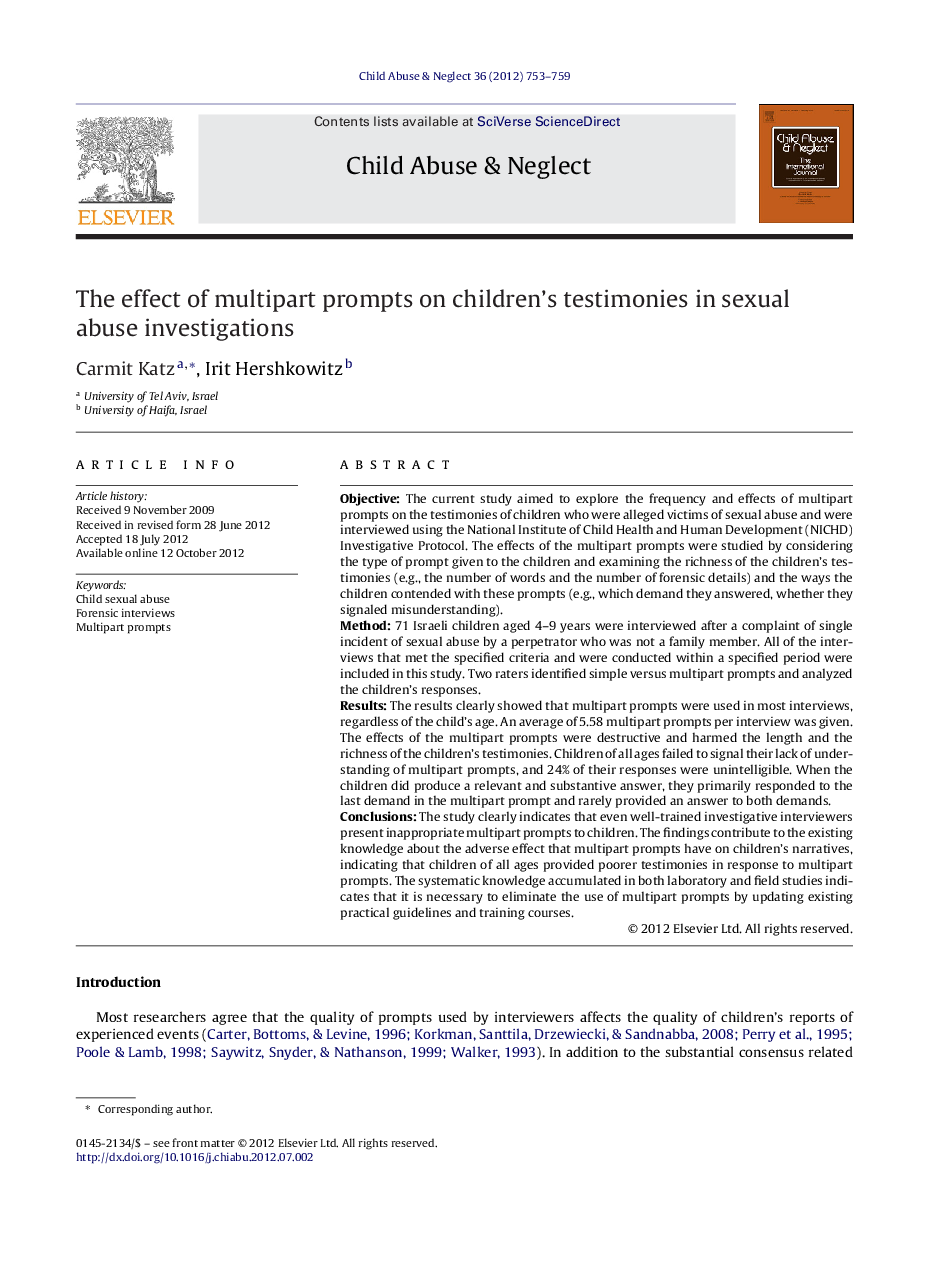| Article ID | Journal | Published Year | Pages | File Type |
|---|---|---|---|---|
| 345134 | Child Abuse & Neglect | 2012 | 7 Pages |
ObjectiveThe current study aimed to explore the frequency and effects of multipart prompts on the testimonies of children who were alleged victims of sexual abuse and were interviewed using the National Institute of Child Health and Human Development (NICHD) Investigative Protocol. The effects of the multipart prompts were studied by considering the type of prompt given to the children and examining the richness of the children's testimonies (e.g., the number of words and the number of forensic details) and the ways the children contended with these prompts (e.g., which demand they answered, whether they signaled misunderstanding).Method71 Israeli children aged 4–9 years were interviewed after a complaint of single incident of sexual abuse by a perpetrator who was not a family member. All of the interviews that met the specified criteria and were conducted within a specified period were included in this study. Two raters identified simple versus multipart prompts and analyzed the children's responses.ResultsThe results clearly showed that multipart prompts were used in most interviews, regardless of the child's age. An average of 5.58 multipart prompts per interview was given. The effects of the multipart prompts were destructive and harmed the length and the richness of the children's testimonies. Children of all ages failed to signal their lack of understanding of multipart prompts, and 24% of their responses were unintelligible. When the children did produce a relevant and substantive answer, they primarily responded to the last demand in the multipart prompt and rarely provided an answer to both demands.ConclusionsThe study clearly indicates that even well-trained investigative interviewers present inappropriate multipart prompts to children. The findings contribute to the existing knowledge about the adverse effect that multipart prompts have on children's narratives, indicating that children of all ages provided poorer testimonies in response to multipart prompts. The systematic knowledge accumulated in both laboratory and field studies indicates that it is necessary to eliminate the use of multipart prompts by updating existing practical guidelines and training courses.
